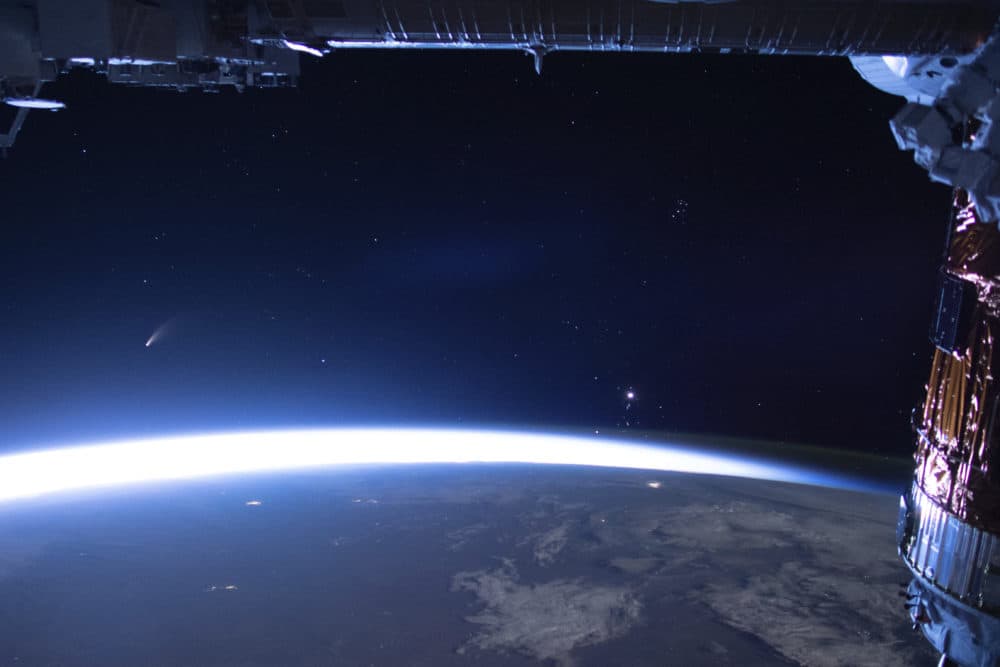Advertisement
See Comet NEOWISE Now, Or You'll Have To Wait 6,800 Years To See It Again
Resume
Don't miss a once-in-6,800-year opportunity. The NEOWISE comet, first discovered in March, has just recently become visible to the human eye.
"The last time we had a comet this bright anywhere in our sky, north or south hemisphere, was in 2006," said Kelly Beatty, space reporter and senior contributing editor of Sky and Telescope magazine. "Some people might remember Comet Hale-Bopp back in 1997. This is a little more subtle, but it's still very pretty."
The name NEOWISE is an acronym for the spacecraft that discovered this comet, the Near-Earth Object Wide-field Infrared Survey Explorer, a NASA space telescope.
Beatty told Radio Boston that while comets swing by the Earth pretty regularly, they are not always bright enough to be easily visible — so take advantage while you can.
On how the comet will look:
"It has a bright point-like head, which you could make out by eye. When you look at it with binoculars, and I encourage that, you see this graceful sort of tail draped upward from it that is telling you this is not an ordinary star by any means."
On how to find the NEOWISE comet in the sky:
"The less light pollution you have, the better. In particular, you need a clear view toward the northwest... Note where the sun sets and around 9 p.m., go out and take a turn to the right. Look up and you'll see the Big Dipper hanging in the sky. If you don't see the Big Dipper, then your chances of seeing the comet are really poor."
"Draw a line visually down from the right edge of the Big Dipper toward the horizon. ... Clench your fist and hold it out at arm's length ... and about one fist above the horizon you will find Comet NEOWISE."
On how he characterizes the makeup of a comet:
"Comets are dirty snowballs. They were created 4.5 billion years ago out on the fringes of our solar system. They have been stone-cold for all that time. This one has fallen in from the great beyond and, when it gets near the sun, the sun's heat vaporizes — or technically sublimates the ices on it — and causes those gases, along with dust, to go flying off. The comet itself — that core — is only about three miles across, but it creates this huge cloud of gas and dust around it and the tail, which reflects sunlight, makes it much more obvious than it otherwise would be."
"If this were only an asteroid three miles across, we'd never see it."
Is there anything else you can look for in the sky this month?
"If you are a really early riser, get up and go outside again. You need a clear view in all directions. At 4:30 a.m. right now, you have a chance to see all five of the planets that are visible to the eye... You look toward the east and you'll see a crescent moon and the brilliant planet Venus. Draw a line toward the lower left. That's when you'll come across Mercury, sweep your gaze to the other side of the sky. You'll pass Mars, which is high up, and then over in the southwest are Jupiter and Saturn about to set. Do it now because in a week you won't be able to see all five at one time."
This segment aired on July 16, 2020.


